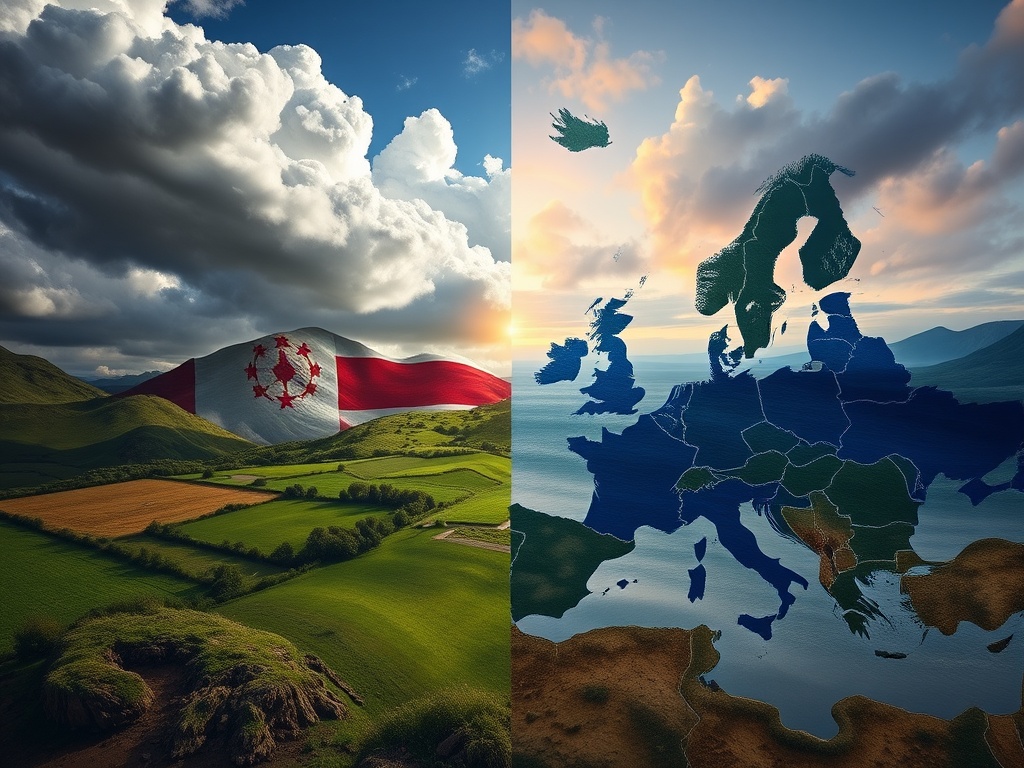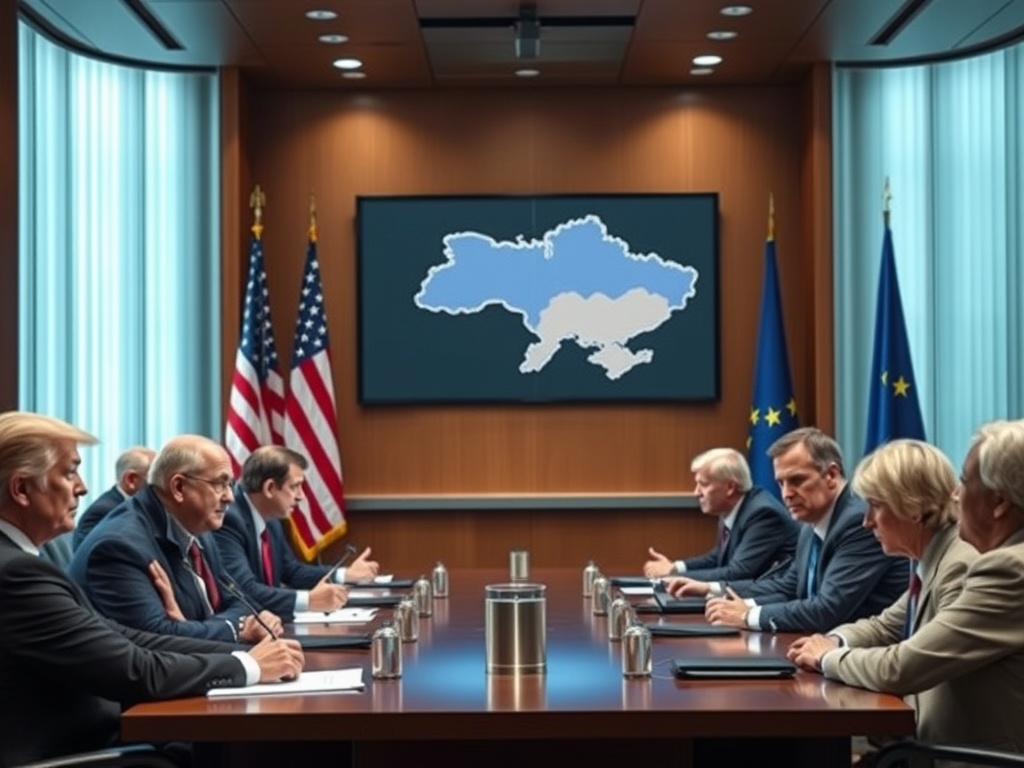Tensions Rise Between the US and Europe Over Ukraine Comments

Recent remarks by former US President Donald Trump have escalated tensions between Europe and the United States. Trump labeled Ukraine’s President Volodymyr Zelensky a “dictator” and cautioned that without a peace agreement with Russia, Ukraine risks losing its sovereignty entirely. The fallout from these comments has prompted strong reactions from Western politicians, who accuse Trump of echoing Russian propaganda. Notably, Labour leader Sir Keir Starmer has yet to publicly address the situation as of Wednesday evening.
As Prime Minister Rishi Sunak prepares for a significant visit to the White House next week, he faces the challenging task of building rapport with Trump while advocating for continued support for Kyiv in negotiations with Vladimir Putin. The Labour Government is currently emphasizing message discipline among its MPs. They appear hesitant to confront the US President directly, possibly to maintain diplomatic decorum.
Trump’s comments included a critique of Zelensky, whom he described as a “modestly successful comedian” who has convinced the US to fund an unwinnable war. He asserted, “He refuses to have elections, is very low in Ukrainian polls, and the only thing he was good at was playing Biden ‘like a fiddle.’ A dictator without elections, Zelensky better move fast or he is not going to have a country left.” This statement comes as Ukraine has postponed its scheduled elections due to the ongoing conflict with Russia, although opinion polls indicate that Zelensky remains relatively popular among the Ukrainian populace.
- Among those who responded to Trump’s remarks was Conservative leader Kemi Badenoch, who firmly stated, “President Zelensky is not a dictator. He is the democratically elected leader of Ukraine who bravely stood up to Putin’s illegal invasion.” Badenoch agreed with Trump that Europe must increase its defense spending.
- Former Foreign Secretary James Cleverly countered Trump by asserting he was “wrong,” while Liberal Democrat leader Sir Ed Davey described Trump’s statements as “alarming,” suggesting they mimic Putin’s narrative.
- Germany’s ambassador to the UK, Miguel Berger, remarked on Times Radio, “We all know that these are Russian speaking points… We need to keep a cool head on all of that, but also make clear that we don’t share this assessment.”
On Tuesday evening, Trump controversially claimed that Ukraine was responsible for instigating the full-scale war with Russia that erupted nearly three years ago. In response, Zelensky stated that Trump appeared to be “surrounded by disinformation.” Defence Secretary John Healey emphasized, “Three years ago, one country illegally invaded another, and since then, the Ukrainians have been fighting for their freedom. They’ve been fighting for their future, and they still are.” He expressed concern that while discussions of peace dominate the narrative, the ongoing war must not be forgotten.
Former Prime Minister Boris Johnson, who was in office when the conflict began, suggested that Trump’s comments are “not intended to be historically accurate but to shock Europeans into action.” Conversely, former Defence Secretary Sir Ben Wallace criticized Trump for spreading “fake news” and “Kremlin propaganda.”
There has also been pushback from within Trump’s own party. His former Vice President, Mike Pence, asserted, “Ukraine did not ‘start’ this war. Russia launched an unprovoked and brutal invasion claiming hundreds of thousands of lives.”
During his upcoming discussions in Washington, Starmer plans to advocate for the US to provide a security “backstop” for Ukraine following any peace agreement. Western officials indicated that they would like the US to station air power in neighboring countries to ensure a rapid response if Russia attempts to resume hostilities. There are also plans for a peacekeeping force, likely led by the UK and France, to be stationed within Ukraine. This force would consist of fewer than 30,000 troops tasked with securing vital infrastructure such as ports, rather than attempting to control the entire border area.




